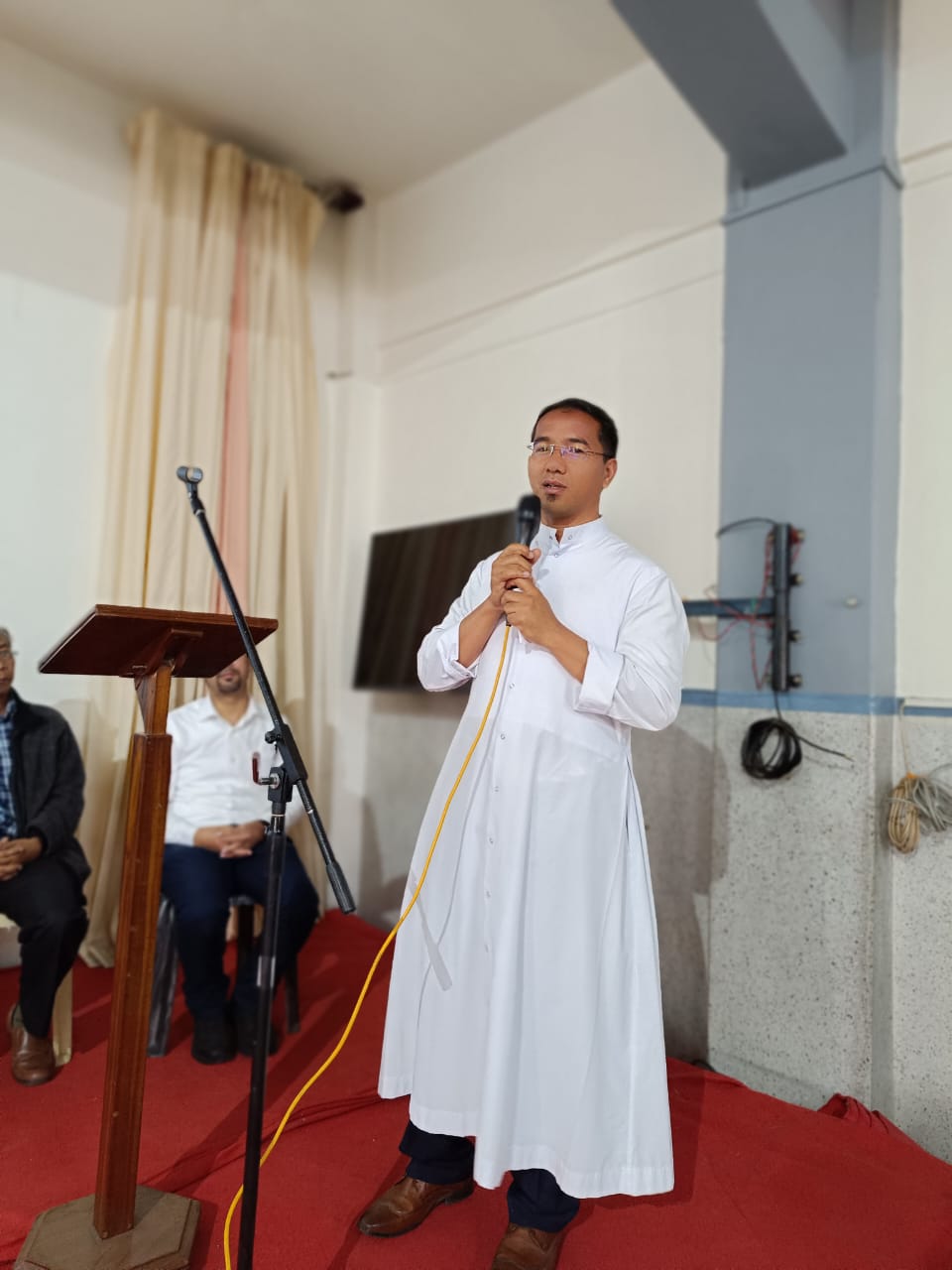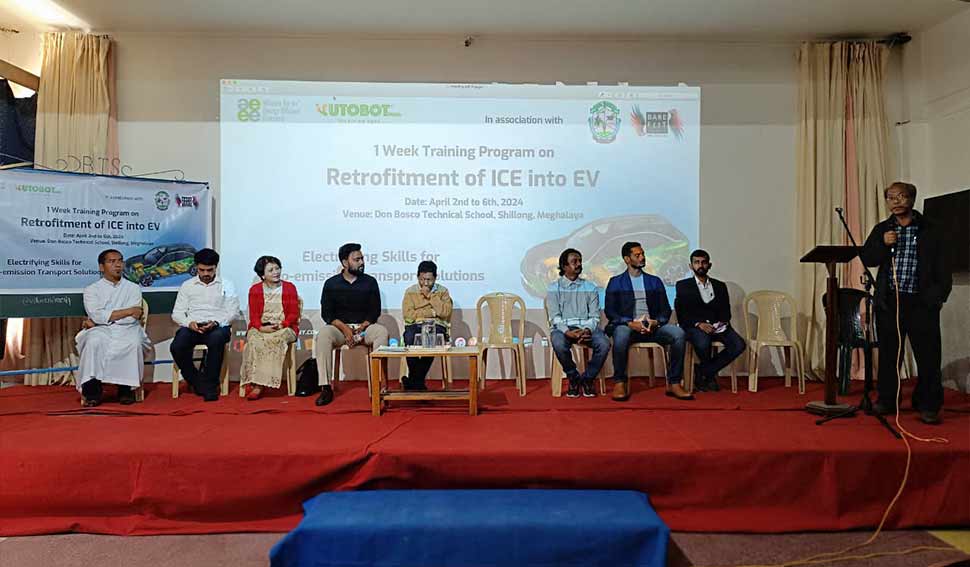Alliance for an Energy Efficient Economy (AEEE), in collaboration with Autobot India
In an electrifying leap towards sustainable transportation, the Alliance for an Energy Efficient Economy (AEEE), in collaboration with Autobot India, has launched an innovative one-week training program at Don Bosco Technical School (DBTS), Shillong. This initiative stands out not just for its focus on the burgeoning field of electric vehicles (EVs) and retrofitting technologies but also for its concerted efforts to include women and persons with disabilities, preparing them for a flourishing future in the EV space.
The program was inaugurated in the presence of dignitaries including Shri E. Kharmalki, the Retired Commissioner of Transport, alongside officials from the Meghalaya State Skills Development Society (MSSDS), NIT Meghalaya, Martin Luther Christian University (MLCU), National Career Service Centres for Differently Abled, and Barefoot Trust. This esteemed gathering underscored the collaborative spirit and wide-reaching support for the initiative.
“Retrofitting old vehicles can help Meghalaya’s transportation system lower its carbon emissions from aging cars. Older vehicles tend to pollute more. Rather than scrapping these old vehicles, converting them into electric vehicles is a smart way to use resources responsibly.
This workshop will lay the groundwork for training our students to do such conversions, making Meghalaya self-reliant in this area” said by Shri E. Kharmlki, Retired Commissioner of Transport, Meghalaya.
“Skill development is a key pillar in the growth of e-mobility. Skilled professionals can boost consumer confidence, similar to how we rely on experienced technicians for petrol and diesel vehicles. The rise of electric vehicles (EVs) will create numerous opportunities for people. It’s important to prepare everyone for these future prospects, ensuring these opportunities are inclusive. Women, individuals with disabilities, and members of marginalized communities should all have equal chances and be equipped for success, ensuring no one is left behind.”
Said by Dr. Vikas Nimesh, Senior Research Associate, AEEE
A Week of Intensive Learning and Practical Innovation
The curriculum is a balanced fusion of theoretical insights and hands-on practical experience. It guides participants through the basics of EV technology and the step-by-step process of converting traditional internal combustion engine vehicles into electric ones. A key feature of the program is a live project converting an old petrol vehicle to electric, offering students a tangible grasp of the technology and its transformative potential. This hands-on approach not only enriches their understanding but also showcases the practical benefits and innovative prowess of electric vehicles.
Envisioning an Inclusive Future in E-Mobility
The inclusivity of the program is a testament to AEEE’s vision of building a diverse and skilled workforce equipped to steer India’s e-mobility journey. By bringing women and persons with disabilities into the fold, the initiative aims to broaden the talent pool and foster a culture of innovation that leverages the strengths and perspectives of all community members.
This initiative also serves as a model for technical institutes nationwide, advocating for adopting similar programs that align with the industry’s evolving demands and environmental sustainability goals. This approach aims to build a robust foundation of knowledge and skills in future EV engineers and technicians, thereby bolstering India’s position in the global EV market.
As the week-long program at DBTS, Shillong, started, it’s clear that AEEE and its partners are not merely teaching technical skills; they are laying the foundation for a more inclusive, sustainable, and innovative future in the e-mobility sector. This initiative is a pioneering model, showcasing how technical education can evolve to meet the demands of the future while ensuring that no one is left behind.


